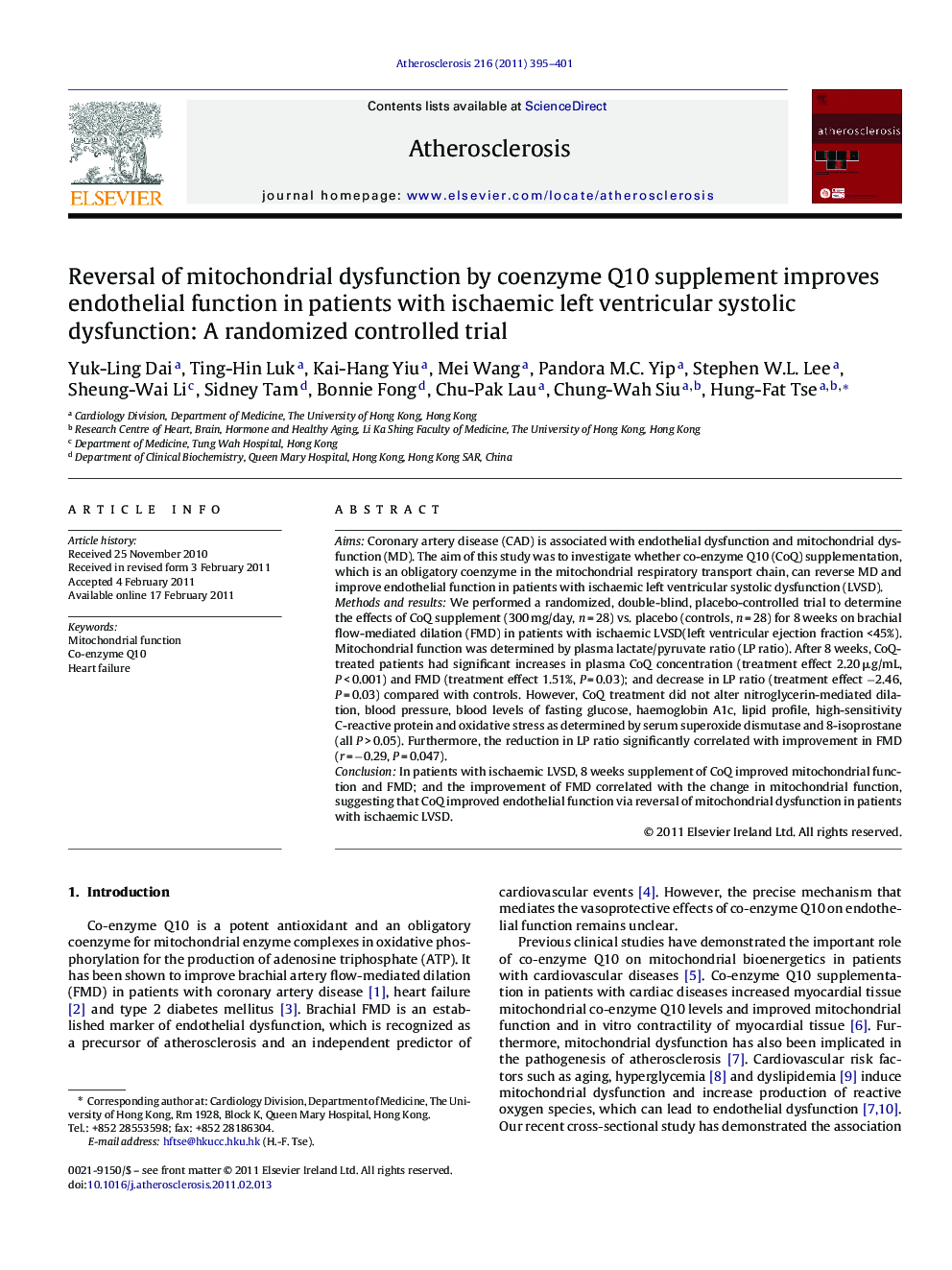| Article ID | Journal | Published Year | Pages | File Type |
|---|---|---|---|---|
| 5949482 | Atherosclerosis | 2011 | 7 Pages |
AimsCoronary artery disease (CAD) is associated with endothelial dysfunction and mitochondrial dysfunction (MD). The aim of this study was to investigate whether co-enzyme Q10 (CoQ) supplementation, which is an obligatory coenzyme in the mitochondrial respiratory transport chain, can reverse MD and improve endothelial function in patients with ischaemic left ventricular systolic dysfunction (LVSD).Methods and resultsWe performed a randomized, double-blind, placebo-controlled trial to determine the effects of CoQ supplement (300 mg/day, n = 28) vs. placebo (controls, n = 28) for 8 weeks on brachial flow-mediated dilation (FMD) in patients with ischaemic LVSD(left ventricular ejection fraction <45%). Mitochondrial function was determined by plasma lactate/pyruvate ratio (LP ratio). After 8 weeks, CoQ-treated patients had significant increases in plasma CoQ concentration (treatment effect 2.20 μg/mL, P < 0.001) and FMD (treatment effect 1.51%, P = 0.03); and decrease in LP ratio (treatment effect â2.46, P = 0.03) compared with controls. However, CoQ treatment did not alter nitroglycerin-mediated dilation, blood pressure, blood levels of fasting glucose, haemoglobin A1c, lipid profile, high-sensitivity C-reactive protein and oxidative stress as determined by serum superoxide dismutase and 8-isoprostane (all P > 0.05). Furthermore, the reduction in LP ratio significantly correlated with improvement in FMD (r = â0.29, P = 0.047).ConclusionIn patients with ischaemic LVSD, 8 weeks supplement of CoQ improved mitochondrial function and FMD; and the improvement of FMD correlated with the change in mitochondrial function, suggesting that CoQ improved endothelial function via reversal of mitochondrial dysfunction in patients with ischaemic LVSD.
